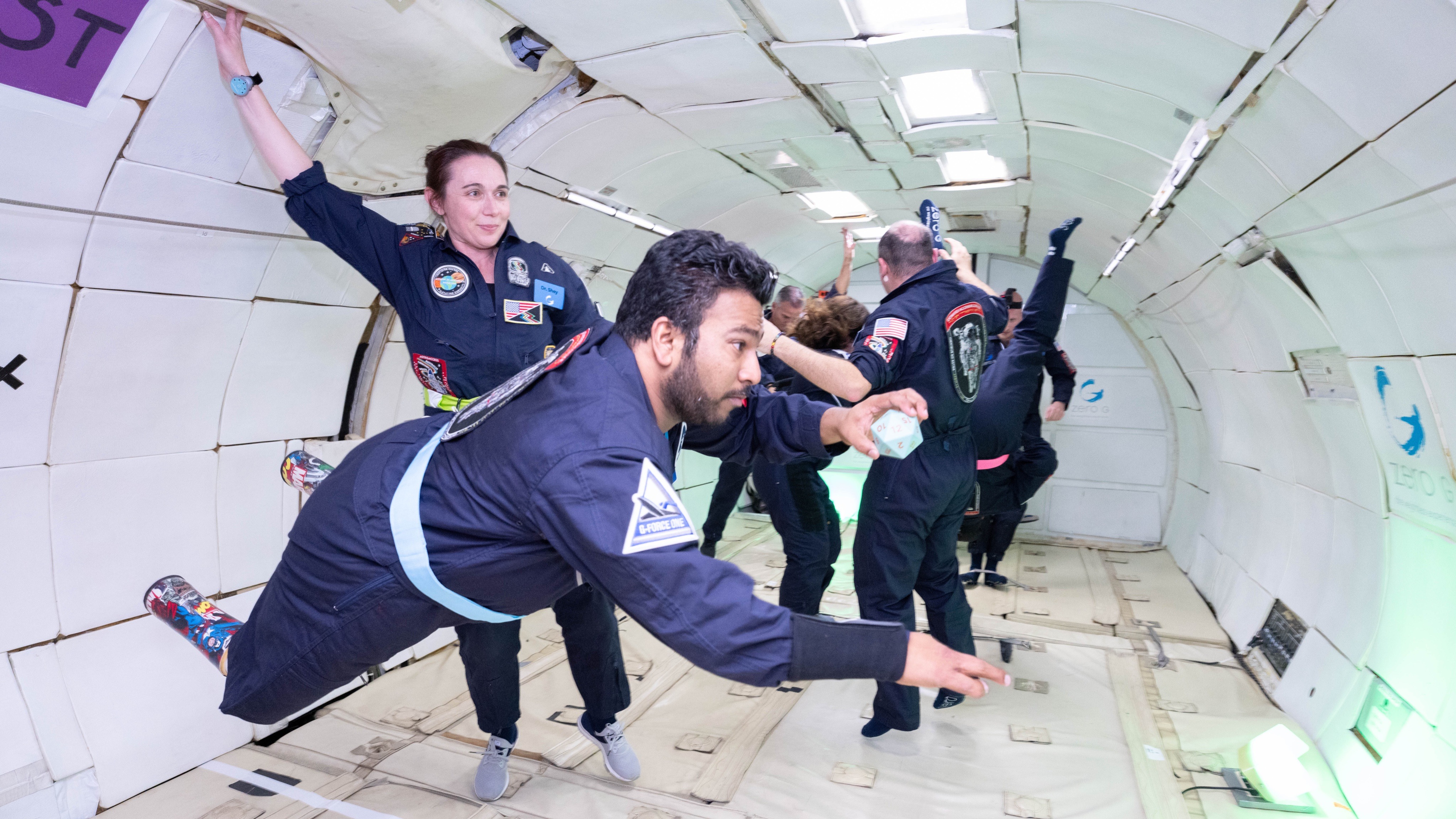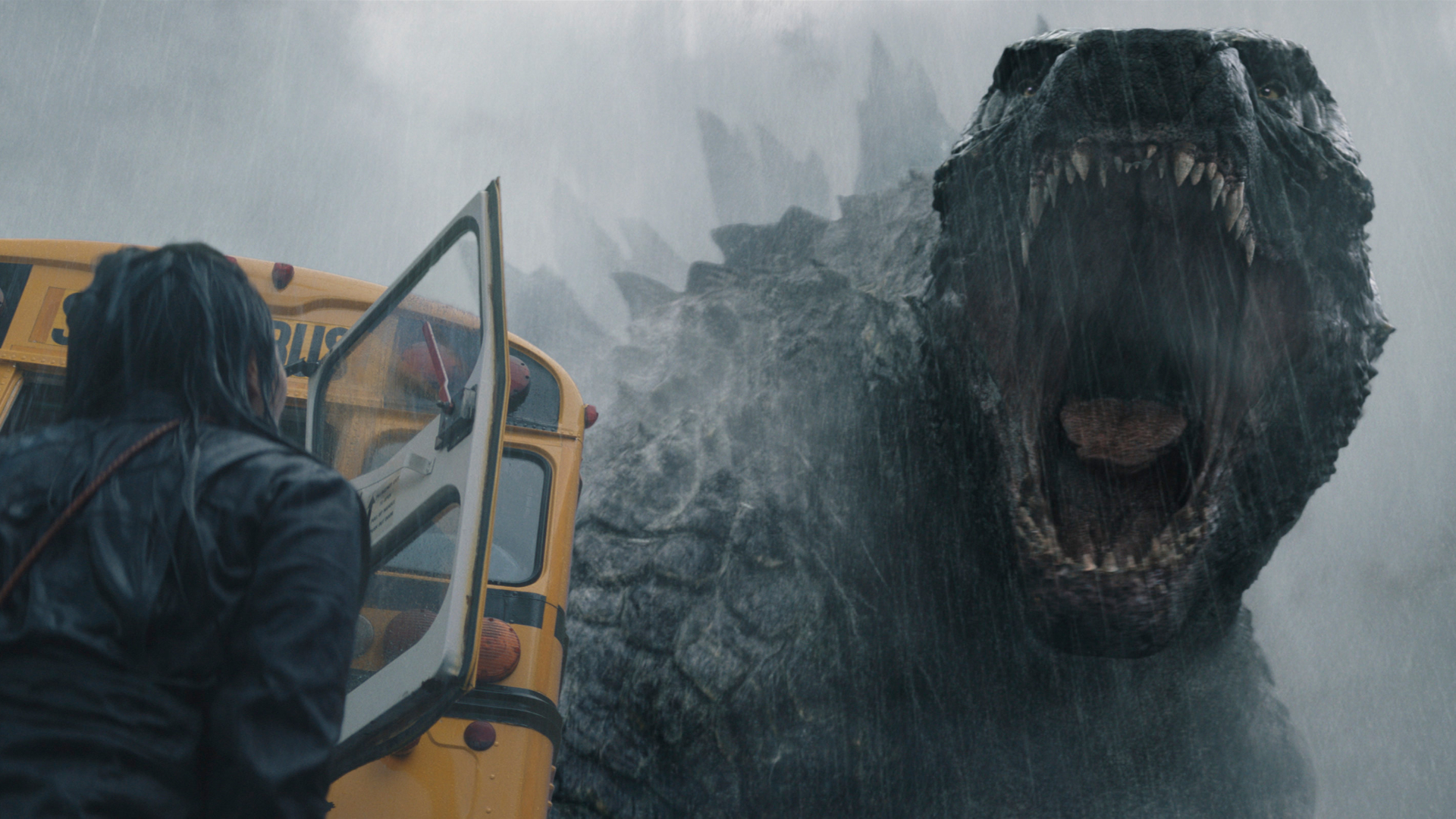Zero-G flight for disability ambassadors shows space is accessible for all
AstroAccess flew 14 individuals from 5 countries on a parabolic research flight Dec. 15, to open up space research to more people.

Breaking space news, the latest updates on rocket launches, skywatching events and more!
You are now subscribed
Your newsletter sign-up was successful
Want to add more newsletters?
A giant leap for disability inclusion took place on a parabolic flight this month.
AstroAccess flew its first formal space research flight on Dec. 15, with 14 disability ambassadors taking flight on a Zero-G plane, the project announced. Participants flew science projects grouped by several crew focuses, called Blind, Mobility, Deaf and Hard-of-Hearing.
"AstroAccess is proving that space can one day be accessible for everyone," stated space entrepreneur and Space For Humanity founder Dylan Taylor, who made it to orbit himself in 2021 on board a Blue Origin New Shepard system. Taylor co-sponsored the flight along with AstroAccess co-founder George Whitesides (former CEO of Virgin Galactic) and Amy Dornbusch, a winemaker and angel investor.
Related: Disability ambassadors successfully complete Zero-G flight
The participants used a "Zero-G" aircraft that flew 18 parabolas starting from an altitude of 25,000 feet (7,620 meters). The mission took off and landed at Ellington Airport in Houston, nearby NASA's Johnson Space Center where astronauts do training in the United States.
"While there is still work to be done to make space accessible for everyone, the success of this historic parabolic flight and ESA's selection of John McFall show strong movement in the right direction," Anna Voelker, the executive director of AstroAccess, said in the same statement.
AstroAccess flew two fewer people than expected (it originally forecast 16 participants) and about a week later than scheduled, but did not say in a press release why the flight changes were made. The Dec. 15 flight was the second-ever dedicated flight for the organization after it opened opportunities in 2021 to any adult with disabilities living in the United States.
Breaking space news, the latest updates on rocket launches, skywatching events and more!
These were the experiments the crew ran, according to AstroAccess:
- The Blind Crew tested tactile graphics for cabin walls to allow both blind crew members and sighted crew members to stay oriented during emergencies and find emergency gear.
- The Blind and Mobility Crews also demonstrated that a disabled person can independently get into a launch seat and safely fasten the five-point seat harness.
- In collaboration with Sony and SonicCloud, the Hard-of-Hearing and Blind Crews demonstrated a system to enable improved speech understanding using Sony headphones and SonicCloud's software that tailors audio to their hearing ability.
- The Deaf crew continued their work on linguistics studies of intelligibility of American Sign Language (ASL) in zero gravity, following research on another parabolic flight and a scuba diving experiment.
The flight is taking place as space begins to include more people with disabilities, including the privately-funded SpaceX Inspiration4 flight of Hayley Arceneaux last year and the European Space Agency's (ESA) November selection of paralympian trauma surgeon John McFall.
Elizabeth Howell is the co-author of "Why Am I Taller?" (ECW Press, 2022; with Canadian astronaut Dave Williams), a book about space medicine. Follow her on Twitter @howellspace. Follow us on Twitter @Spacedotcom or Facebook.

Elizabeth Howell (she/her), Ph.D., was a staff writer in the spaceflight channel between 2022 and 2024 specializing in Canadian space news. She was contributing writer for Space.com for 10 years from 2012 to 2024. Elizabeth's reporting includes multiple exclusives with the White House, leading world coverage about a lost-and-found space tomato on the International Space Station, witnessing five human spaceflight launches on two continents, flying parabolic, working inside a spacesuit, and participating in a simulated Mars mission. Her latest book, "Why Am I Taller?" (ECW Press, 2022) is co-written with astronaut Dave Williams.
